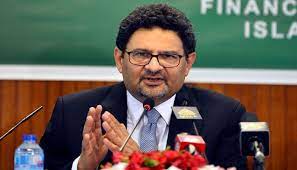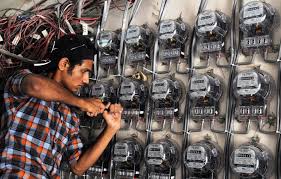Islamabad August 16 2022: Federal Minter for Finance, Miftah Ismail said here on Tuesday that loan disbursements under the Extended Fund Facility (EFF) would start by the end of this month as the International Monetary Fund (IMF) board is expected to meet on August 29.
Addressing a press conference, the minister said that Islamabad had received Letter of Intent (LoI) from the fund requiring some edits by State Bank of Pakistan (SBP) and Finance Ministry, which were done after holding meetings with IMF.
The minister said new LoI has been received today (Tuesday) which he would send back after signing adding “We expect the board meeting would be held in August, hopefully 29 August then the disbursement would start.”
The minister said that rupee has been performing as best currency of the world following continuous appreciation against dollar for first 15 days of August. Earlier, US Dollar had gone out of control after July 17 and reached to Rs239 exchange rate.
He said, at that time when rupee was depreciating in July he had argued that there was need to control imports and bring it to the level of exports plus remittances to strike balance.
The minister said that the imports were recorded at $.80 billion during the fiscal year 2021-22 whereas the exports stood $ 31.7 billion, bringing trade deficit to $48.3 billion. During the year, the remittances were recorded at $30 billion. Consequently, the current account deficit (CAD), he said, was recorded at $17.5 last year despite the fact had PTI was specially focusing to bring it down.
He said, PTI had singularly focused on CAD and was not realizing the measures taken by Pakistan Muslim League government for improving growth rate, infrastructure improvements, building energy and communication.
He deplored that during its 4 years turn, PTI government took around Rs19,300 billion debt which is around 79 percent of total debt taken in 71 years.
He said, PTI gave $17.5 billion CAD, 1500 billion electricity circular debt, Rs.1400 gas circular debt, Rs200 billion losses in Sui Northern gas and left just 10.3 reserves at a time when the country was liable to pay $21 billion debt in 2022-23, $3 billion in June-July.
He question what real freedom the PTI has been talking about when there is $48 billion trade deficit while the PTI government was providing subsidy on fuel, giving amnesty to friends and bring defaults. He said, it was not only PTI, last government did the same citing 8.1 percent deficit in Musharraf regime.
He said, the incumbent government curbed imports including non-essential and luxury goods and then vehicles, air-conditioners, fridges, and locally assembly products that needed 90 percent imports.
He said the government was monitoring imports, exports and remittances adding that so far there had been $3.4 billion outflows and $4.1 billion outflows during the month of August. So more dollars are coming in than coming out, he added.
The minister said, imports reduced by 20 compared to last year while exports increased by 5 percent compared to last year.
The Minister for Finance said that the government will increase tax on petroleum products and not the price, for which OGRA has fixed the formula.
Miftah said yesterday’s decision to increase the price of petroleum products was right, which is necessary for the economic self- reliance of the country.
He said that difficult economic decisions are being taken for economic self-reliance in the country.
The Minister said that if “we had increased the production of energy,the country would also need to increase exports by increasing industrial production.
He said the government has saved the country from bankruptcy, “we have staked our political capital.”
The Minister said that our next goal is to control inflation and added that petroleum tax has been reduced from Rs 42 billion to Rs 27 billion.
He said that the price of petrol in regional countries including India is Rs 302 per liter and similarly the price of petrol in Bangladesh is Rs 308 per litre.
Both countries India and Bangladesh have foreign reserves of $600 billion dollars and $35 billion respectively.










